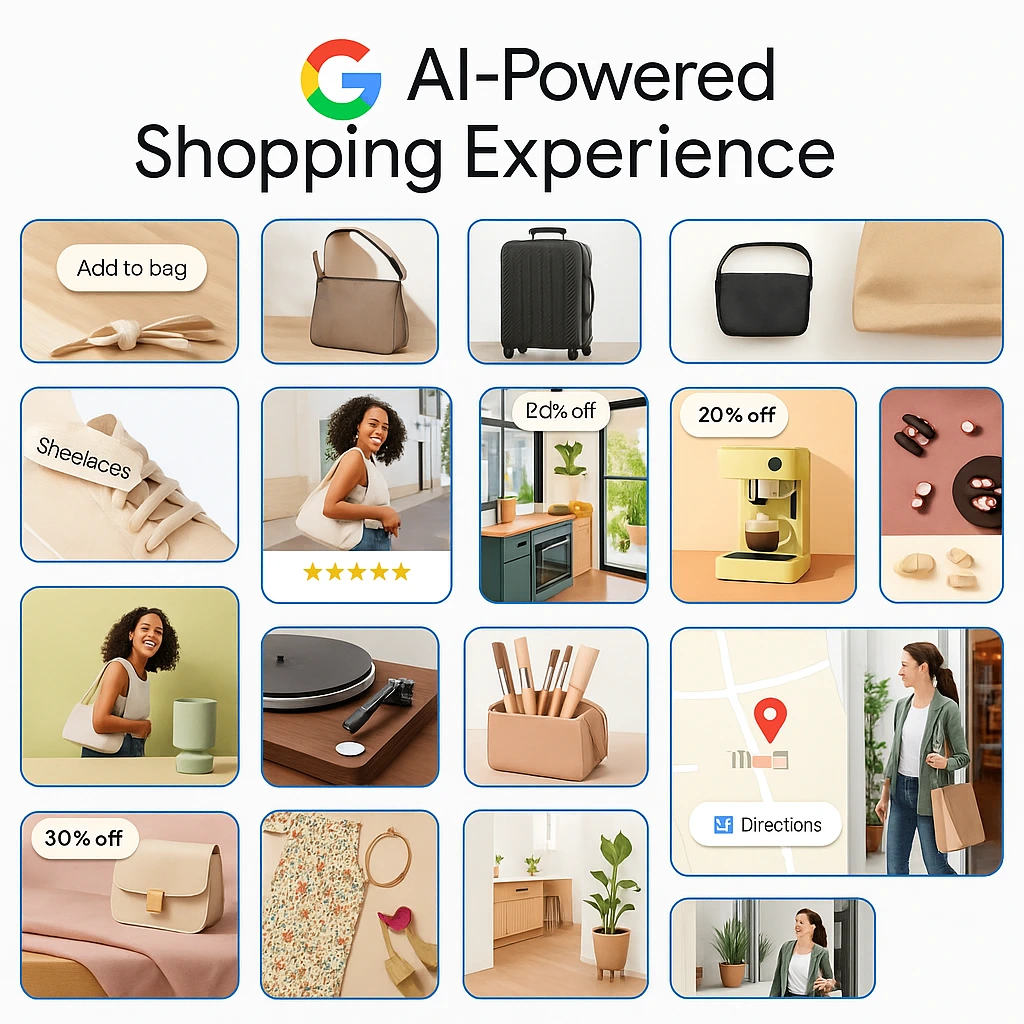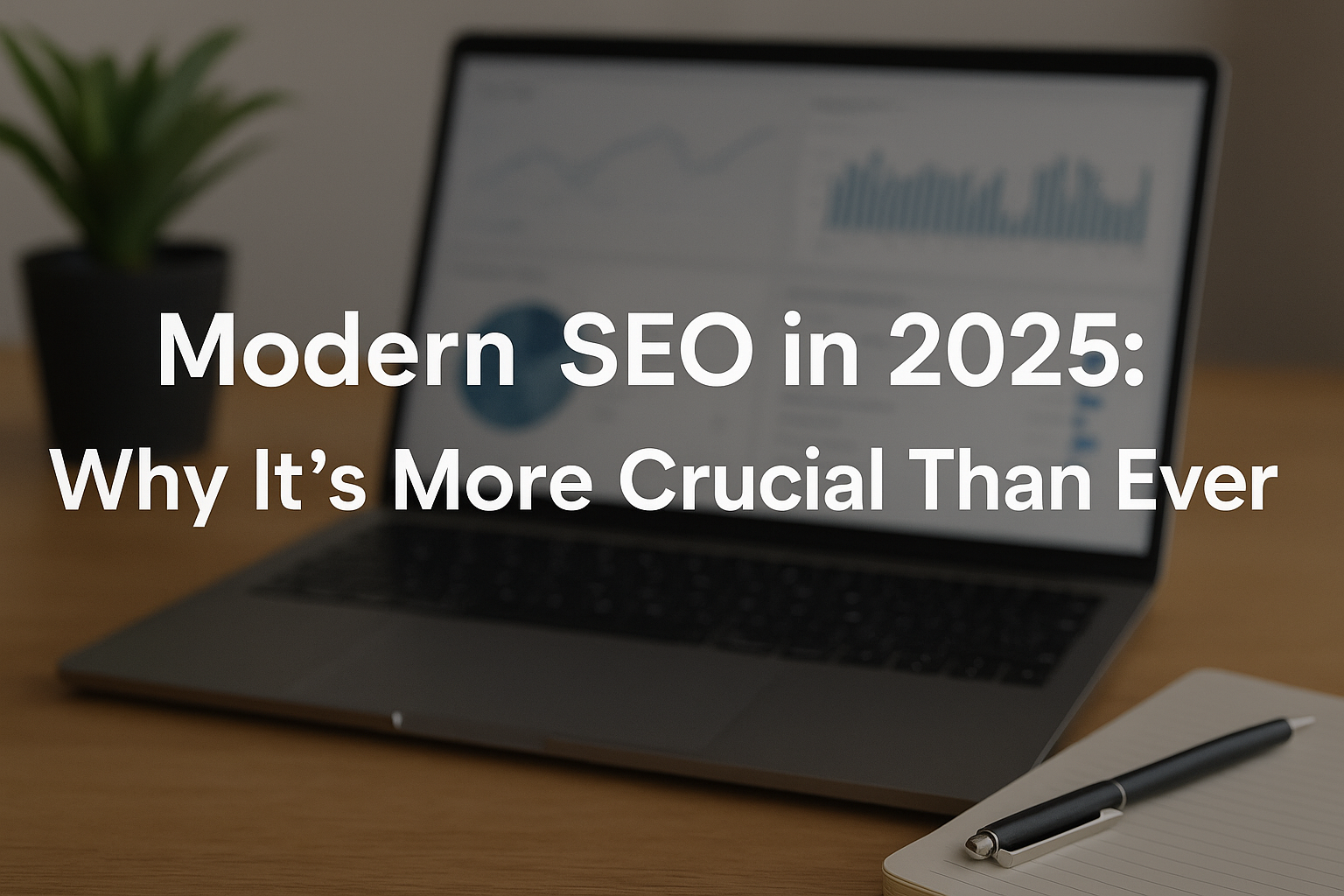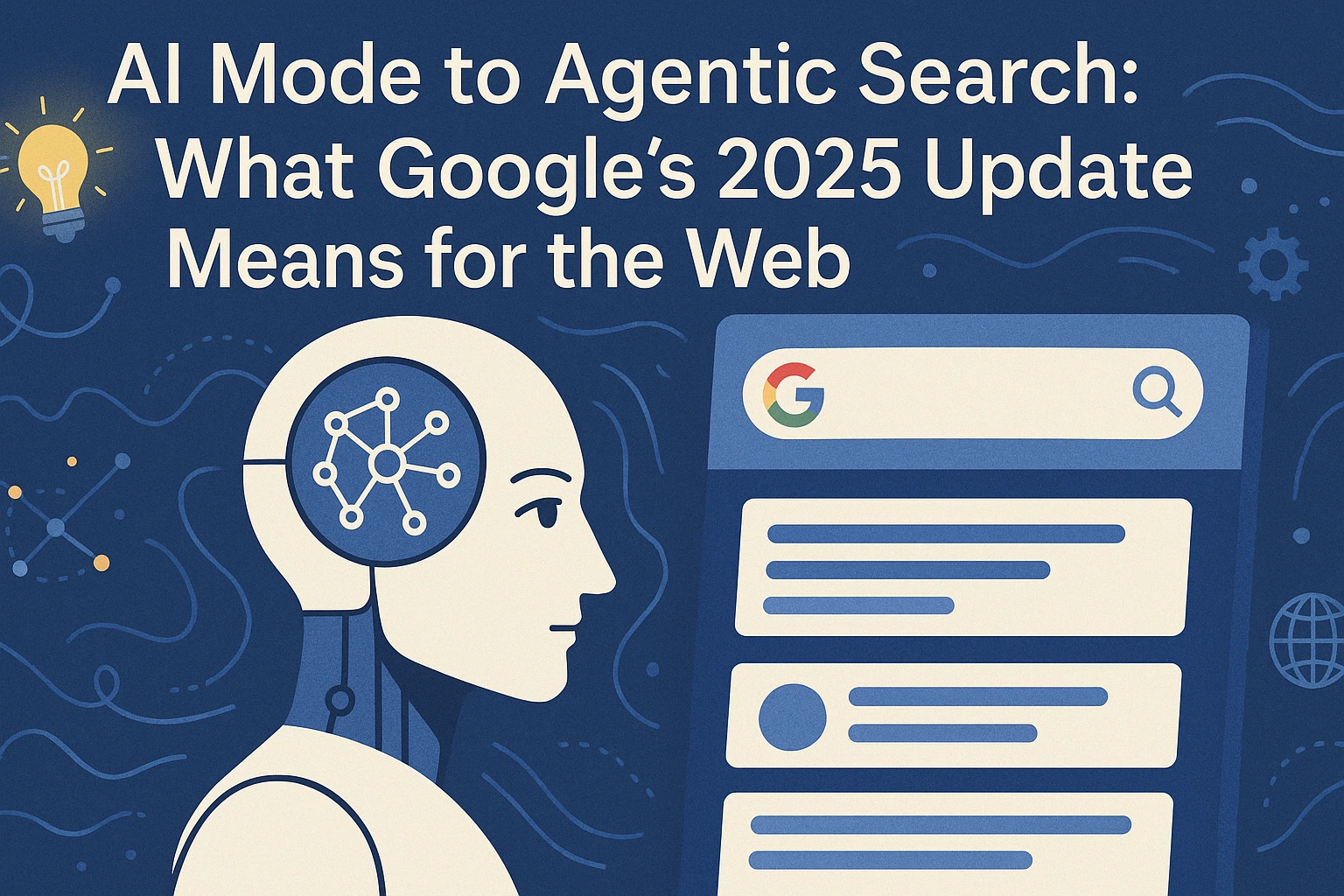AI Mode to Agentic Search: What Google’s 2025 Update Means for the Web
Search has always been the gateway to discovery, knowledge, and action. But Google made a calculated turn toward something far more in May 2025: a search experience that not only informs but also thinks, plans, personalizes, and runs.
Driven by the innovative Gemini AI models, Google has unveiled a set of revolutionary capabilities that change user web interaction. These changes reflect a whole change in the goal and power of search, not only little enhancements.
Following experiments in search laboratories Google has introduced this AI Mode into the U.S. Google is integrating a customized version of Gemini 2.5, most intelligent model, into search for both AI Mode and AI Overviews in the United States.
Let’s investigate each of these fresh features in great detail, dissect how they will affect digital behavior going forward, and learn how SEO has to change to survive in this intelligent, agentic age of Google Search.
New Google AI Features 2025 Launch: What’s Changed in Search
1. Inclusion of AI Mode in Google Search
The flagship experience of Google’s latest direction is AI Mode. It activates when users opt in and enables Google’s AI to replace the conventional search engine approach.
AI Mode provides contextual, structured, conversational results spanning many facets of a query instead of a list of blue links or short answers.
These days, you can pose multi-step questions like:
“Help me create a grocery list and arrange a week of healthy meals using quick recipes.”
AI Mode creates a complete plan, recipes, shopping list, and even links to stores instead of calling for many follow-up searches. It’s goal-oriented search—where users are looking for action rather than only knowledge.
Source: https://blog.google/
2. Deep Search for Users
Deep Search is intended for searches spanning beyond first responses. Synthesizing many points of view, facts, and sources to develop deeper knowledge improves the user experience for exploratory and research-based searches.
Ask something like:
“What are the current market trends in India?”
Deep Search synthesizes data, professional viewpoints, and trends into a single explanation rather than producing several disconnected pages. It reflects the way a research assistant might assist a student or professional in acquiring insights in many fields.
Source: https://blog.google/
3. Agentic Capabilities
Agentic AI is where Google Search starts to act—not just answer. These capabilities let the AI complete chores on your behalf over several steps and platforms.
For instance: you might say:
“Book a restaurant for Saturday night, send the invite to my friends, and locate local parking.”
The AI feature can coordinate activities among calendars, apps, and services, bridging search with productivity.
This capacity fits under a larger trend known as “agentic computing,” in which artificial intelligence transforms from an information source to an executor and problem solver.
Source: https://blog.google/
4. Live Data Integration
From traffic and flight updates to company inventory and event schedules, Google’s artificial intelligence is now hooked into real-time information streams.
Ask Something Like:
“Do they have iPhone 16 Pro in stock? Is the nearest Apple Store busy right now?”
Details on local inventory and live foot traffic will be available.
Search thus resembles a living dashboard for decision-making more than anything else. Google is an actual, situation-aware assistant rather than a search engine now.
Source: https://blog.google/
5. Personal Context Awareness
Google now integrates context from Gmail, Calendar, YouTube, Maps, and Drive—with full user control and privacy safeguards. This allows artificial intelligence to respond especially to every individual.
Ask Something Like:
“When should I leave Friday for my flight?”
Without your doing, Google checks your flight information in Gmail, traffic using Maps, and provides a customized time.
Search now enters the field of personal life management.
6. Custom Charts
Great for comparisons, data storytelling, or decision-making, this tool lets users create on-demand visualizations based on structured public data.
Ask Something Like:
“Show me a chart contrasting American inflation rates from 2010 to 2025 with European rates.”
Google’s artificial intelligence creates one instantly rather than looking for charts. It’s like having a search bar data analyst right there.
Source: https://blog.google/
7. AI-Powered Shopping Experience
With the help of artificial intelligence (AI), Google’s new shopping features evaluate thousands of products, reviews, features, and specifications to provide highly tailored product recommendations.
For instance:
“Find me a fast-shipping, well-reviewed, breathable white linen shirt for less than $60.”
Google displays a carefully curated shortlist with side-by-side comparisons, review summaries, and direct purchase links rather than directing you to five different websites.
This is a personal shopping assistant supported by the full intelligence of Gemini AI, which goes far beyond standard product search.

Source: https://blog.google/
Future Trends Shaping from Google’s AI Advancements
The advances above are changing not only search but also user behavior and digital expectations. The following are important trends we should expect:
1.Search Will Turn into a Conversation
Typing keywords will be replaced by naturally expressing goals or asking questions, much as in a conversation with a wise friend.
2.From search engine to task engine
Google will become a productivity assistant, guiding consumers not only in learning or discovery but also in actual task completion.
3.Exploration Over Navigation
Users will interact with carefully selected, condensed, multi-source material created and visualized by artificial intelligence rather than surfing the internet.
4.Personalism at the Core
Users will expect all answers to consider their preferences, habits, and real-life context, producing highly customized results.
5.Enhanced Demand on Content Utility
Things meant just for ranking won’t survive. The rule will be utility, clarity, completeness, originality.
6.Deep Research
Users will look for deeper answers to their questions and the most accurate and user-friendly content will rank higher.
Read More: Integrating Generative Engine Optimisation (GEO) with SEO for Local Search Success
A Positive Outlook: Why These Changes Are Good for Everyone
Change easily makes one feel intimidated. But these developments show a strong and favorable change in our interaction with knowledge and the internet:
- Social Codify thinks that it may impact the website traffic and clicks but it will lead to more conversions and increase the sales of the products of the website.
- It will lead to faster responses, wiser assistance, and more time saved for users to translate into Google doing the thinking for you; you do not have to assemble a dozen links.
- For companies, it levels the playing field. Big budgets will not ensure visibility—quality, helpfulness, and authenticity will make all the difference.
- AI will assist businesses to enhance their local SEO by studying local search behavior and streamlining their Google My Business profile.
- For authors, it has actual worth. We can concentrate on what we do best—helping others—instead of following trends.
- It will overall improve the user experience and lead to higher traffic on websites who have focused more on the user-friendly content and delivery of the most relevant and accurate information.
This is the search engine we have always yearned for—one that knows us and serves us.
Aligning Your SEO Plan with Google’s New AI
The days of following algorithms are passed. The AI tools of Google call for a change of viewpoint. Here’s how you adapt:
- Write whole, multi-intention pieces. Your material should address related questions a user might ask next in addition to the main one. Imagine “content clusters” instead of single pages which will lead to better ranking on the SERP.
- Work for clarity, organization, and actionability. Headings, structured data, embedded tools, and call-to- action elements will enable artificial intelligence to grasp and improve your material.
- Designed for multimodal interaction. Support material including images, graphs, videos, and clean formatting that facilitates Google’s pulling into responses produced by artificial intelligence.
- Know intention rather than just words. Rather than “What word should I rank for?” ask: “What problem does this content solve?” Relevance determines your visibility today more than just keyword density.
- Use individualized experiences. Whether your target market is families, students, professionals, or travelers, produce materials that fit user tastes, situations, or profiles so that more users are able to interact with your website.
Read More: Google’s March 2025 Core Update
Conclusion
Google’s most recent AI innovations are changing the definition of search, not just making it better. Our focus is changing from merely figuring out solutions to actually completing tasks. Google’s AI now serves as a clever, user-friendly guide, assisting you at every stage with ease and personalization, whether you’re organizing a trip, buying a laptop, looking into a new career, or choosing what to eat for dinner.
For those of us creating digital content, products, or services, this marks a major shift. People don’t just want information—they want outcomes and to get the desired results one must be prepared to deliver according to the user intent. The opportunity is growing along with the bar for usefulness. Being truly helpful is not only valuable, but also necessary in this new era of AI-driven experiences. There has never been a better moment to get involved, address pressing issues, and genuinely change the world.
Recent Post
Our SEO Services Across Major Cities

CONTACT US
Get in Touch With Us!
Useful Links
Our Services
Contact Info
- 518, Eros Corporate Park, IMT Manesar, Sec 2
- 3rd Floor, Plot No. 48, Sector - 44, Opp. EPF Regional Office Gurugram
- info@socialcodify.com
Call us now:
9896096303
Whatsapp us!
9896096303




